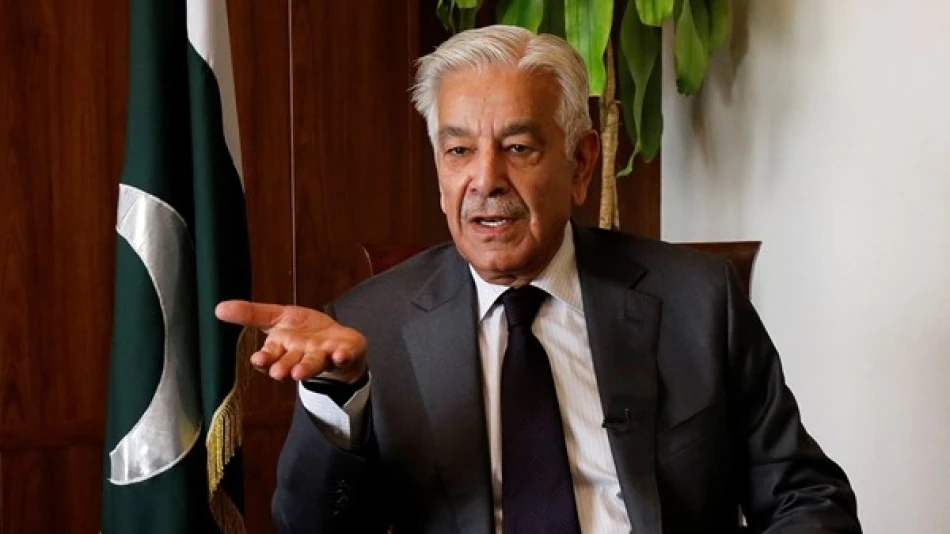
Afghanistan and Pakistan Explore Ceasefire Mechanisms to Establish Lasting Peace
Afghanistan and Pakistan resumed talks in Turkey on Saturday, trying to establish a permanent ceasefire along their shared border after deadly clashes two weeks ago killed dozens of people. The two countries agreed to a Qatari-mediated truce a week ago, but the details remain unclear and need to be worked out in Istanbul.
The stakes are high. Pakistani Defense Minister Khawaja Asif warned journalists that an "open war" could break out if the talks fail. The border tensions between these nuclear-armed neighbors have escalated dramatically, making this diplomatic effort critical for regional stability.
From Pakistan's perspective, the Istanbul meeting will be decisive because it should establish the "mechanisms" needed for intervention when Pakistan raises concerns about hostile groups operating from Afghan territory. Ibrahim Bahiss, an analyst with the International Crisis Group in Afghanistan, explained that these mechanisms would include intelligence sharing.
"For example, Pakistan can provide us with geographical coordinates of fighters. And instead of launching airstrikes, we expect Afghanistan to act directly against them," Bahiss said.
But here's the thing - even the experts aren't optimistic. Bahiss admitted that "it's not certain this will solve the problem" and added that he doesn't have much hope that a technical mechanism will address the root causes of the escalation.
The border dispute reflects deeper issues that have plagued Afghanistan-Pakistan relations for years. Pakistan has long accused the Taliban government of harboring militant groups that launch attacks on Pakistani soil. Afghanistan, meanwhile, has faced its own security challenges since the Taliban returned to power in 2021.
For regional markets and international observers, the outcome matters because instability along this border affects trade routes and could trigger a broader conflict. Both countries are already dealing with economic pressures, and a prolonged border dispute would only make things worse.
The fact that Turkey is hosting these talks shows how seriously the international community takes this crisis. Turkey has positioned itself as a mediator in various regional conflicts, and its involvement suggests there's still hope for a diplomatic solution.
Most Viewed News

 Layla Al Mansoori
Layla Al Mansoori






